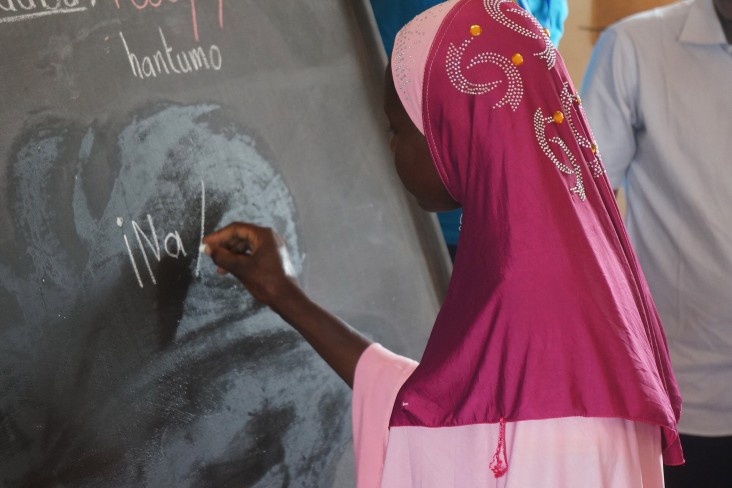
For Immediate Release
Niamey, Niger – Today, the United States Embassy in Niamey celebrated World Literacy Day, visiting a functional literacy and numeracy training center in Kobadje, Tillaberi region. The U.S. Ambassador to Niger, Eunice Reddick, spoke to some of the 30 participants in the literacy program there.
“I am pleased to be with you this morning to demonstrate our commitment to helping the people of Niger, especially women who, like you, want to create a better future for their children, their families, and for themselves,” said Ambassador Reddick. “Attending these literacy trainings will help you and other women like you to contribute to your communities. Women who can read, write, and count will earn more money in their business and will make better decisions in their households; decisions that will be beneficial for their children, husbands, their community, and for themselves.”
These literacy trainings are part of the United States Agency for International Development’s (USAID) Resilience and Economic Growth in the Sahel-Accelerated Growth (REGIS-AG) project, which works to increase incomes for vulnerable families and communities and to build their ability to withstand climatic and economic shocks.
The functional literacy trainings will enable individuals to benefit more fully from training in business and marketing, to be more active and engaged members of producer organizations, and to participate more profitably in value chains. Twenty-five teachers will provide functional literacy trainings to 750 students at 25 training centers in vulnerable communities in Maradi, Zinder and Tillaberi.
USAID works in collaboration with multiple regional and international partners, as well as the Governments of Niger and Burkina Faso, to reduce chronic vulnerability by increasing economic well-being, strengthening institutions and governance, and improving health and nutrition of communities in the Sahel. USAID supports the Global Alliance for Resilience (AGIR), a European Union-led framework that helps to foster improved synergy, coherence and effectiveness in support of resilience initiatives in the 17 West African and Sahelian countries.







Comment
Make a general inquiry or suggest an improvement.